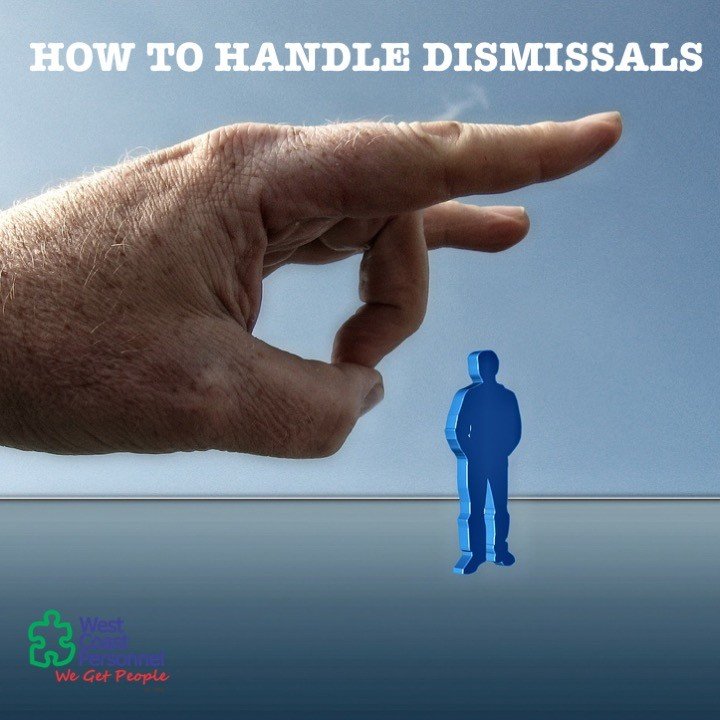
05 May DISMISSALS – A FEW WAYS TO HANDLE
Let this be clear. This cannot not be used as a tactic to get rid of employees. With handling dismissals, there are procedures to follow and they need to be fair. There needs to be actual poor work performance, incompatibility or ill health, to be able to start the negotiations for employment at a lower salary, a more junior role in the organization or to dismiss them based on incapacity.
The employer must ascertain whether the employee is capable of performing the work that he was employed to do, and if not the extent to which he is unable to perform those duties. The employee is entitled to participate in this investigation, which may require further medical investigation, and the employee can also be asked to demonstrate his ability.
Dismissal based on incapacity due to ill-health, incompatibility or poor work performance, depends on the question whether the employee can fairly be expected to continue in the employment relationship. One must bear in mind the interests of the employee, the employer and the equities of the case dismissal based on incapacity due to poor work performance. This needs to be documented, and the employee needs to receive guidance in the form of appraisal and training, if need be.
Other factors to be considered when handling possible dismissals would include the nature and cause of the incapacity, the likelihood of recovery and improvement or recurrence. The period of absence and its effect on the employer’s operations must also be considered as well as the effect of the employee’s disability on other employees.
If the employee’s duties cannot be adapted in such a way that the employee is able to fulfil those duties, and no alternative position is available, then dismissal may be justified. If the employee is offered a lower position and reduction in salary, then the lower salary will apply.
Thus, it is obvious that the principles of procedural fairness and substantive fairness applies to such dismissals, as it applies to all types of dismissals.
Should the employee not accept alternative employment at a lower salary the following factors need to be considered:
When deciding whether a dismissal for incapacity was fair or not, the following must be considered:
· whether the employee failed to work to a required standard
· whether the employee was aware of the standards
· whether the employee was given a fair chance to meet up to the standards
· whether dismissal is the right punishment for failing to meet the standards
Handling dismissals based on poor performance will only be fair if the employer:
· has given the employee proper training, instructions, evaluation, guidance and advice
· assessed the employees performance over a reasonable period of time
· investigated the reasons for continued poor performance
· investigated ways of solving the problem without resorting to dismissal
· gave the worker a chance to be heard before deciding to dismiss
Handling dismissals for (temporary/permanent) ill health or disability will only be fair if the employer:
· investigated the degree and duration of the injury or incapacity
· considered ways of avoiding dismissal, for example getting a temporary worker until the sick employee has recovered
· tried to find alternative work for the employee to do
· tried to adapt the work so that the employee could still do it
· gave the employee a chance to be heard before deciding to dismiss
How severely ill or disabled the worker is (degree of incapacity) and for how long he or she is likely to remain ill or disabled (duration of incapacity), as well as the reason for the incapacity, will be considered when deciding whether the dismissal is fair or not. More effort is expected of the employer if the employee was injured or became ill because of their job.
Handling dismissals is a sensitive process and because the law is tight, one should approach a specialist if you are not sure.


No Comments